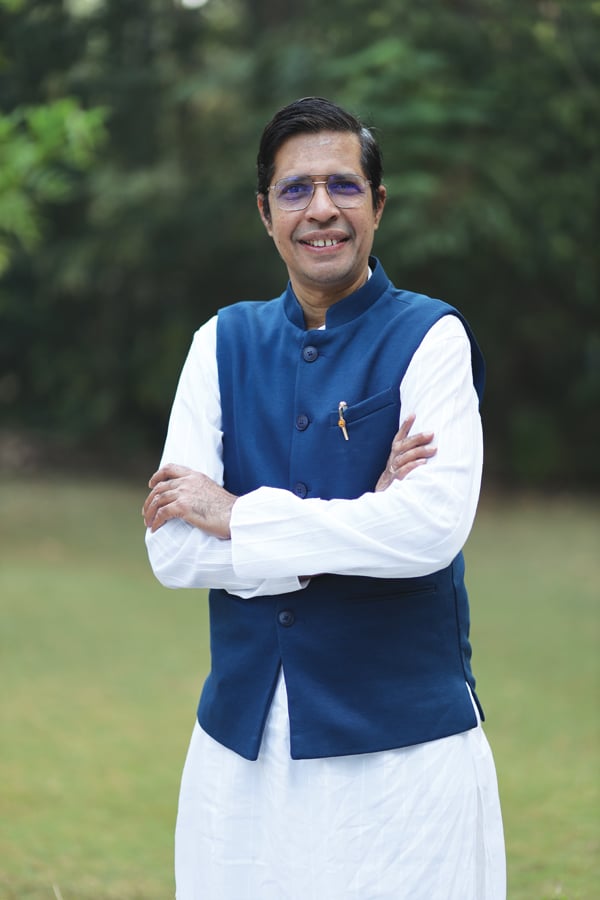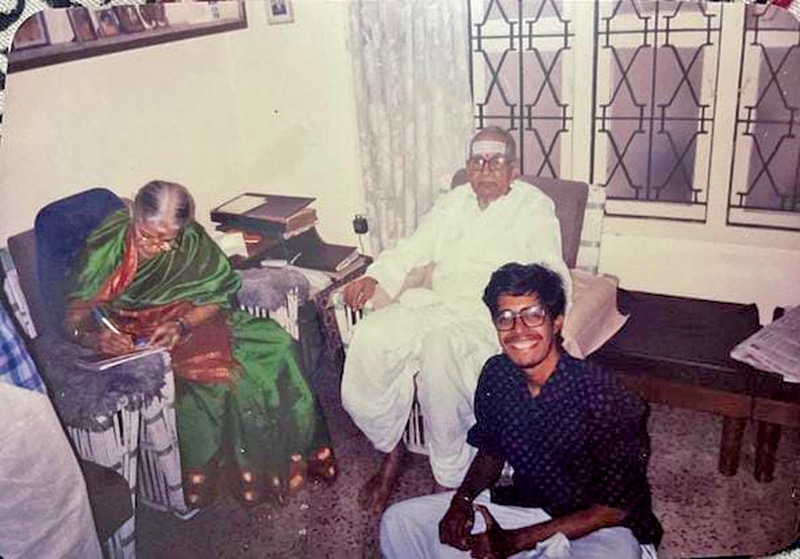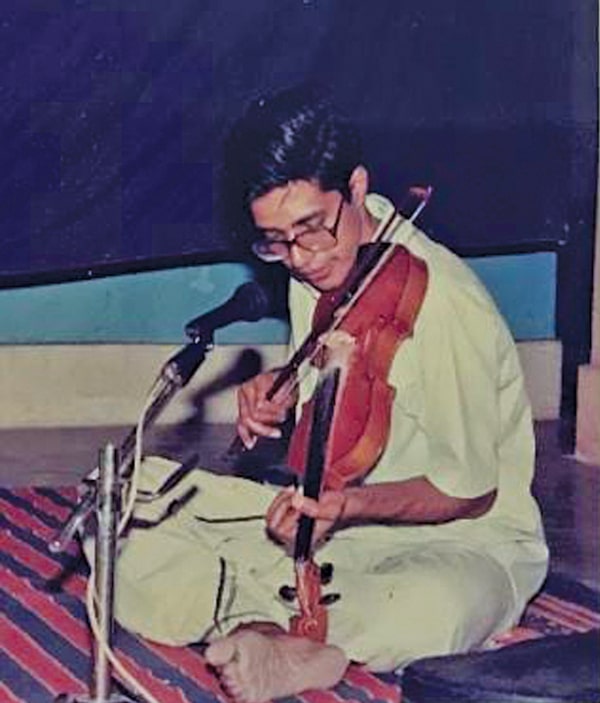Prof. V. Kamakoti, the esteemed Director of IIT Madras and the visionary pioneer behind India’s groundbreaking indigenous computer microprocessor ‘Shakti,’ graciously shares his extraordinary journey. From his deep commitment to education and innovation to his passion for music and rural education, Prof. Kamakoti offers insights and shares his experiences in conversation with Sudeshna Das, Consulting Editor of the EFY Group

“I was born in Chennai in 1968. My father, a professor of Sanskrit at the University of Madras, hailed from a family of academicians, while my mother was a homemaker. Both my paternal and maternal grandparents resided in villages. My father held a strong belief in the cultural richness of rural India, and as a result, he was determined that I spend my early years in the village rather than the city. This belief in the essence of Indian culture residing in rural areas significantly influenced my life’s journey and shaped my personality.” Prof. Kamakoti’s life story commences with this intriguing anecdote, a tale that profoundly impacted his path and character.
Nurturing roots and happiness
Prof. Kamakoti’s early childhood was primarily spent in the villages of Mudikondan and Vishnupuram, located in southern Tamil Nadu, where he resided with his grandparents. He gained firsthand knowledge of the challenges associated with farming and agricultural practices, gaining a deep understanding of the hardships of rural life. Moreover, he imbibed a valuable lesson about the importance of local flora and fauna.

“In our villages, farmers are regarded as the cornerstone of society, as they provide sustenance for everyone. If the farmers were to cease their food production, regardless of how much wealth one possesses, it would all become meaningless. This was one of the insightful lessons I learned during my formative years in the village. I believe that my father’s decision to immerse me in village life during my early years was a profound one.”
Upon returning to Chennai, the young Kamakoti commenced his preschool education. During this period, he was a timid and introverted boy, quite unlike the person he has become today, as he humorously mentions. His school years, from preschool to the 10th standard, were marked with enjoyment and a lack of inclination towards becoming an academic overachiever.
His life as a school cricket team’s opening batsman was progressing well until an incident in the middle of the seventh grade. A bouncer struck his spectacles with a cricket ball, prompting his father to worry that he might eventually suffer a head injury. In response, his father took his cricket bat and threw it into a well, declaring that he could pursue anything except cricket. Kamakoti did not accept this decision easily and protested for two months. Nonetheless, he soon discovered another passion that would become a lifelong companion—the violin. He found an excellent violin teacher living just across the street from his home and began learning to play the violin, quickly developing a deep passion for the instrument.
“As a director, when I see students who are stressed or depressed, I recognise that societal and family pressure are often the root cause. Fortunately, except for the cricket debacle, my parents did not impose anything on me. This was a significant contribution to my life.”
The 10th grade marked a turning point in his life. His grandfather, an astrologer, predicted that he would excel in academia in the future. This prediction motivated Kamakoti to intensify his studies.

Driven by the aspiration to excel academically, Kamakoti secured admission to the prestigious PS Senior Secondary School in Mylapore, located in the heart of Chennai. However, shortly after joining the new school, he fractured his hand. As a result, his performance in the first quarterly examination was dismal, with a score of 25 out of 100 in mathematics. Nevertheless, after receiving counselling from the school principal, his academic performance improved. In the subsequent quarterly examination, he achieved a score of 50 out of 100, and in the final exam, he earned a perfect 100 in mathematics and 90 in physics, although chemistry posed a challenge. He reminisces about securing his position as a top 2% scorer in mathematics in the CBSE 12th board exams. However, he emphasises that numbers and scores don’t define a person’s worth. What truly matters is the support and opportunities one receives, just as his parents provided him with a window to explore and succeed.
EFY++ CONTENT: ACCESS TO THIS CONTENT IS FREE! BUT YOU NEED TO BE A REGISTERED USER.
Oops! This is an EFY++ article, which means it's our Premium Content. You need to be a Registered User of our website to read its complete content.
Good News: You can register to our website for FREE! CLICK HERE to register now.
Already a registered member? If YES, then simply login to you account below. (TIP: Use 'forgot password' feature and reset and save your new password in your browser, if you forgot the last one!)






